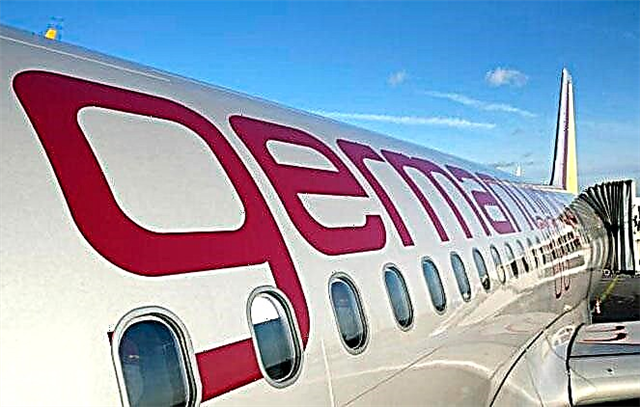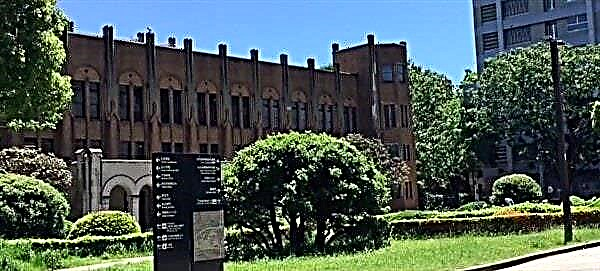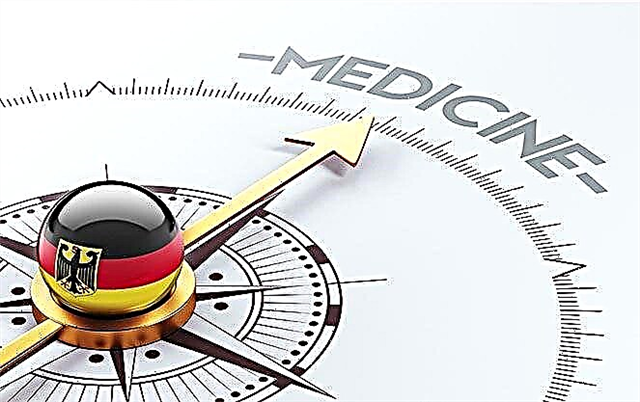The German healthcare system, having gone through a long path of reforms and transformations, is one of the most developed and progressive in the world. Thanks to its basic principles of accessibility and equality, as well as the technical equipment of medical facilities and the professionalism of doctors, thousands of patients from Europe and other regions of the planet come here. The main question of those wishing to get treatment is the choice of a hospital. Clinics in Germany can be divided into specialized and multidisciplinary. Which one to give preference and how to become a patient are questions that require detailed consideration.

A little about German medicine
Absolutely every citizen can receive medical care in the country, regardless of civil status. Another question is whether he can do it for free. German medicine is insurance. This means that those who make monthly contributions to the special funds can use the services of the hospitals free of charge.
The amount of deductions is 15% of earnings. Half of this amount is paid by the employer, and the second part is withheld from the employee's income. The state pays for the unemployed and the poor.
For everyone else, treatment in Germany is paid.
Why is it worth coming to Germany for treatment:
- an individual approach is applied to each patient;
- you can get help at any age;
- older people can call a doctor or nurse at home;
- in which clinic to be treated, choose a free center or contact an institution where you will have to pay extra - this is a personal decision of each patient;
- medical preparations are of high quality, and all the latest developments, tested and approved, immediately appear in local hospitals;
- it is possible to find a clinic with a Russian patient service department. Many hospitals provide an interpreter service;
- German doctors go through quite a lot of training before embarking on practical activities.
Even small hospitals are equipped with the latest technology, from diagnostic departments to surgery.
Germany belongs to the countries of the "first line": all the advanced equipment that appears in the world is used first of all here, and only in a few years it may appear in the third world countries.
Technical renewal in clinics is carried out every two years, due to the rapid pace of modernization of specialized equipment. German doctors have the following options at their disposal:
- the latest generation of magnetic resonance imaging;
- non-stop patient monitoring systems;
- robotic-assisted surgical systems da Vinci (da Vinci);
- surgical robots Rosa, which allow high-precision operations on the brain;
- equipment for supporting the vital functions of patients in serious condition;
- rehabilitation exoskeletons;
- devices for the restoration of the intellectual abilities of patients in the Department of Neurology;
- simulators that allow you to work on the resumption of motor function.
Types of clinics
In total, there are over two thousand medical institutions on the territory of the republic. All of them can be divided into three types:
- state - 54%;
- private - 8%;
- charitable - 38%.
The difference lies only in the source of funding. Charitable institutions support cathedrals and churches. One of the most famous is the Hospital of the Holy Spirit (founded in the 13th century), located in an old Gothic building in the northern German city of Lubeck.
Municipal (state) institutions are city clinical or polyclinic centers. They can be found in almost every city in Germany: Baden-Baden, Bonn, Stuttgart, Friedrichshafen, Dusseldorf, Nuremberg and many others.
A small number of doctors work in private clinics - up to 5, not counting the junior and paramedical staff. Such centers are distinguished by higher prices, but by no means by the quality of service or the level of professionalism.
Many doctors open private treatment rooms (Praxis). About 45% of the total number of doctors work this way. Dental praxis are very popular.
University clinics deserve special attention. Most often these are entire medical towns with several buildings. Such institutions combine training, scientific work and the application of the acquired knowledge and achievements in practice.
There are many examples of such hospitals. These are university clinics in the cities of Essen, Mannheim, Tübingen, Frankfurt am Main, Heidelberg, Halle and others. In total, 32 medical institutions operate on the basis of various universities in the country.
Regardless of the form of ownership and region, hospitals are very similar to each other. For example, the arrangement of cabinets for medicines, the arrangement of operating rooms and wards is approximately the same. There are slight differences, but by and large everything is standardized here.
What is treated in German clinics
About 250 thousand foreign patients come to improve their health in Germany. This country is preferred by residents of the United Arab Emirates, neighboring European states and Russians. Among the latter, the FRG gained popularity back in the years of Soviet power, when the Russian hospital in Leipzig was located here for the group of Soviet forces in Germany (GSVG).
Surgery is one of the most developed areas of medicine in Germany. Patients with problems in urology and neurology come here, here they successfully fight against oncological diseases, solve problems in the field of orthopedics.
Many institutions are engaged in psychological support and rehabilitation of patients. Among the most popular is the Center for Spiritual Psychology "Rainbow".
A significant aspect is the presence of a rehabilitation center at a medical institution. This allows you to start the recovery process immediately after completing a complex operation.
It is very important to consider the applied programs and natural resources. Many successfully combine physiotherapy with physiotherapy exercises and fasting (meaning the technique developed by Dr. Buchinger, used in the clinic of the same name on Lake Constance).
When choosing a medical institution, one cannot be guided solely by its scale. To be guided only by the concepts of "large clinic" or "small" would be a mistake. A whole range of health problems in such areas as dentistry, dermatology, allergology, ophthalmology are solved at the level of private specialized offices.
So, the first thing that needs to be emphasized is the specialization of the medical center. Let's consider the main ones.
Oncology
Cancer clinics in Germany are among the leaders in the 5-year survival rate for patients with this diagnosis. This is one of the reasons for such a great demand for therapy or surgical interventions in German cancer centers.
The basic principles that guide local doctors are aimed at minimally invasiveness. The approach is especially relevant in cases when it comes to breast cancer, cervical cancer, prostate cancer.
The leading specialized centers in the fight against cancer are:
- University Hospital Greifswald. Every year, about 1800 inpatients are treated here, another 500 are on outpatient supervision. One of the oldest at the educational institution (founded in 1456). He specializes, inter alia, in the treatment of tumors in children.
- University clinic in Bonn.Founded in 2001 on the basis of a medical institution that worked at the University of Bonn. It includes 31 departments and 21 institutes. Large-scale research work, diagnostics are carried out here, a wide range of services is provided in the following areas: surgery, gynecology, pediatrics, neurology. The center of pathology and the department of neurosurgery deserve special attention. The clinic has 10 intensive care units, 30 operating rooms, 1250 beds. In the Focus magazine rating, the hospital is ranked 8th among German medical facilities.
- Clinic Charite. Works on the basis of the Free University and the Humboldt University (Berlin). It has 4 buildings: Berlin Buch, Mitte, Benjamin Franklin campus, Virchow campus. It is considered one of the most active in the field of scientific activity and the largest university center, which has produced the largest number of Nobel laureates in the field of physiology and medicine. The clinic includes more than 100 institutions, which are united in 17 large centers. Every year, about 125 thousand patients are treated here in inpatient conditions. It takes 1st place in the rating of the Focus magazine.
- Asklepios Clinic Bad Wildungen. Academic institution at the University of Marburg. The cancer center is designed for 210 patients. The focus of the activity is on surgery, represented by several areas: abdominal, general, vascular, orthopedic, as well as neurosurgery and spinal surgery.
- Helios Berlin Buch. It is part of one of the largest European corporations. Specialization: oncology, cardiology / cardiac surgery, orthopedics, urology, neurology. The pride of the Helios Clinic is the Hematological Leukemia Center, whose specialists are engaged in the treatment of blood cancer with the latest innovative methods.
Most of the oncology clinics have their own rehabilitation centers. This enables patients to start the recovery process immediately after therapy.
For example, oncological rehabilitation can be done at the Feldi Clinic in Freiburg, which also specializes in the treatment of lymphatic vessels.
You can get acquainted with the average prices for oncological therapy and surgery in the table below:
| Service | Price range, EUR |
|---|---|
| Diagnosis of cancer in women | 1700-2300 |
| Diagnosis of cancer in men | 2300-2700 |
| Radiation therapy | 8000-26000 |
| Chemotherapy | 3000-6600 |
| Positron Emission Computed Tomography (PET-CT) | 2400-4600 |
| Biopsy with computed tomography (CT) | 1500-2300 |
| Operations | from 10000 |
| Non-invasive treatment | from 6500 |
| Hysterectomy (removal of part of the uterus or the entire organ) using a Da Vinci robot | 8700-20400 |
Cardiology / cardiac surgery

Key treatments for heart disease in Germany: coronary artery bypass grafting, surgical treatment of heart valves and tumors, heart transplant. The leading institutions of this profile can be called:
- Clinic Rechts der Isar in Munich. Founded in 1834, it unites 33 narrow-profile departments, 20 centers. Every year, about 60 thousand patients undergo inpatient treatment, another 250 thousand visit medical institutions on an outpatient basis. The hospital's research centers are among the most reputable in the country. In addition to cardiology, diseases are treated here in such areas as ophthalmology, hemato-oncology, dermatology, orthopedics.
- Cardiology clinic in Cologne. Specialization - surgery. The most complex operations are performed in hybrid operating theaters that combine an X-ray system, a catheter laboratory, and an operating theater itself. Valve surgery aims to preserve them. In addition to therapeutic services, the hospital offers all types of diagnostics. After treatment, patients can undergo rehabilitation in a specialized center.
- University clinic Aachen. The staff of this institution speaks fluent Russian. A special department for working with foreign patients assists in obtaining visas. The hospital operates on the basis of the Technical University of Rhine-Westphalia. It unites more than 20 research centers, 36 specialized clinics, 30 operating units.
Prices for treatment are presented in the table:
| Service | Cost, EUR |
|---|---|
| Coronary stenting | 6000-12600 |
| Detailed blood test | 250-600 |
| Coronary artery bypass grafting | from 22000 |
| Electrocardiogram (ECG) | 60-100 |
| Comprehensive medical examination, Check-up (package for women) | from 2600 |
| Preoperative heart diagnosis | 2000-3000 |
| Comprehensive medical examination, Check-up (package for men) | 1500-3500 |
| Cardiac surgery with valve reconstruction for heart disease (congenital) | 30000-36000 |
| Maintaining and replacing an implanted defibrillator | from 45000 |
Neurological diseases
German medical centers offer innovative treatment for diseases such as multiple sclerosis, epilepsy (through the implantation of stimulants), Parkinson's disease. Almost every medical institution has its own rehabilitation center, where patients with cerebral palsy (cerebral palsy), strokes, and craniocerebral trauma undergo recovery.
The leading clinics are:
- Ludwig Maximilian Clinic at the University of Munich. It takes the 2nd place in the rating of the Focus magazine (2021). It is considered one of the most competent and largest medical institutions in the country and in Europe as a whole. It includes 44 organizations, including narrow-profile clinics, research centers, institutes.
- Goethe Clinic (Frankfurt am Main). About 49 thousand patients come here from all over the world during the year. The institution was founded at the beginning of the 20th century. Today it consists of 32 departments, cooperates with 20 scientific centers, carries out the most complex operations, including those for neurological diseases.
- Alfred Krupp Hospital, Essen-Rüttenscheid. It is able to receive about 900 patients in two buildings. It unites 18 branches and 14 centers of narrow focus.
Approximate prices for treatment are presented in the table:
| Service | Cost, EUR |
|---|---|
| Assessment to confirm the diagnosis of epilepsy | from 5000 |
| Treatment of Parkinson's disease without severe comorbidities | 8300-23000 |
| Multiple sclerosis treatment | 7800-12000 |
| Stem cell therapy for cerebral palsy | from 15000 |
| Implantation of electrodes for epilepsy | 35000-40000 |
| Removing a brain tumor with the Gamma Knife | from 30,000 |
| Laparoscopy of a large hernia | 5000-15000 |
| Bone marrow biopsy | 800-3300 |
Traumatology / Orthopedics

Medical centers of therapeutic and orthopedic orientation deal with diseases of the musculoskeletal system caused by problems with the spine, joints, muscles. Patients come here to recover from severe accidents.
Germany is famous for endoprosthetics centers, in which patients receive new joints that can serve for at least 20 years. The leading institutions are:
- The Clinic for Orthopedics, Traumatology and Sports Medicine (Bonn) is a highly specialized center that can simultaneously receive 145 patients. More than two thousand arthroscopic procedures are performed here annually, and over one and a half thousand joint replacement surgeries are performed here. The clinic's specialists have achieved great success in the transplantation of biomaterials, in the most complex operations on the vertebral sections, in the cultivation of cartilaginous tissue in laboratory conditions.
- Schön Orthopedic Hospital (Munich). Founded in 1913, it specializes in the treatment of acute and chronic disorders of the motor function of the body. Since 2006, the center has been chosen as the medical base of the international football federation FIFA. Key areas: endoprosthetics, orthopedics and sports medicine, spine surgery, osteology and rheumatology, pediatric orthopedics.
- Trauma Center, Murnau (near Munich). Provides patients with comprehensive treatment in the following departments - pain and intensive care, neurorehabilitation, barotherapy, acute neuralgia, speech therapy, ground and air emergency care.
Equally popular are the Orthopedic Center for Athletes in Magdeburg at the clinic of the same name, the Heidelberg University Hospital, the Wuppertal Hospital, as well as the Porz am Rhein Clinic and the private Orthocenter of Dr. Lille.
The table shows the prices for the treatment of diseases in this area:
| Service | Cost, EUR |
|---|---|
| Arthroscopic meniscectomy | from 5500 |
| Knee arthroscopy | from 5700 |
| Ankle joint replacement | from 13000 |
| Knee replacement | from 10500 |
| Scoliosis surgery | from 30,000 |
| Surgery for forearm fracture | 13000-44500 |
Direction of neurosurgery
Neurosurgery is rightfully considered one of the most successful and intensively developing medical fields in Germany. The leading clinics in this area are:
- Department of Neurosurgery Clinic Nordwest. The specialists of the center successfully operate on intervertebral hernias, brain tumors, and stenosis of the spinal canal. Surgical manipulations are performed using intraoperative control and neuronavigation, which reduces the possibility of medical error.
- Department of Neurosurgery at the Charite Clinic Berlin. Specializes in the examination and treatment of cerebrovascular pathology, brain tumors, neoplasms of the base of the skull, diseases of the spine, peripheral nervous system. Here they also deal with such a complex problem as epilepsy, Parkinson's disease, help with pain in the trigeminal nerve, and stimulate the vagus nerve and spinal cord.
- Sana Hospital Duisburg. The Department of Neurosurgery is the treatment of neuropediatric, neurological, orbital diseases. The specialists have gained extensive practical experience in the field of neuroendoscopy and microsurgery.
How much do neurosurgical operations cost:
| Service | Price, EUR |
|---|---|
| Gamma Knife Operations for Spinal Cord Tumors | 12000-22000 |
| CT scan | from 860 |
| Cyber Knife Operations | from 10000 |
| Craniotomy (craniotomy) | 5000-35300 |
| Laminectomy (spine surgery) | 8600-14000 |
Ophthalmic diseases

The ophthalmological direction is also productive thanks to the support of the state, the use of low-traumatic laser techniques, and serious professional training of ophthalmologists. German doctors successfully carry out the most difficult operations on the eyes, not only eliminating vision defects, but also helping to restore it.
Some centers specialize in retinal and corneal transplantation, having their own banks of biological material.
Leading clinics:
- Department of Ophthalmology at Asklepios Hospital. According to the Medical Travel Quality Alliance, this institution is in second place in the ranking of hospitals designed for foreign patients. The eye center is one of the largest in northern Germany. Here they deal with such problems as cataracts, tumors of the eyes and eyelids, glaucoma. Specialists successfully use laser techniques, carry out microsurgical interventions, and use drug therapy.
- Ophthalmological Center "Spreebogen", Berlin - specialized institution, founded in 2003. During this period of time, the clinic's specialists have performed about 65 thousand operations. Ophthalmologists have 17 laser systems at their disposal. The center is headed by a world-renowned physician Professor Manfred Tetz.
Profile departments at university hospitals in Bonn, Dusseldorf, Aachen, and Heidelberg are also very popular.
How much will the treatment of ophthalmic disorders cost:
| Service | Price, EUR |
|---|---|
| Vitrectomy (removal of part or all of the vitreous humor) | 800-5000 |
| Strabismus diagnostics (complex package) | 300-900 |
| Laser vision correction | 1000-3500 |
| Vision correction according to the LASEK method | 1000-2300 |
| Laser trabeculoplasty (a method of treating glaucoma) | From 1000 |
| Operation on two eyes for cataracts | 4000-9000 |
| Strabismus correction (surgery) | 3000-13000 |
| Surgical treatment of retinal detachment | from 3000 |
Dental centers
Oral and Maxillofacial Clinics in Germany offer a full range of diagnostic and therapeutic procedures for all kinds of diseases of the jaw, mouth, face / upper neck. Specialists in this industry work closely with doctors of related fields, for example, with otolaryngologists, oncologists.

The area of responsibility of dentists and maxillofacial surgeons includes: diseases of the teeth and alveolar processes, fractures of the facial part of the skull and soft tissue bruises, as well as inflammatory processes in bone and soft tissues.
When choosing a clinic, you should pay attention to the following:
- Vivantes in Berlin. The main specialization is maxillofacial surgery for adults. A large medical concern in Europe with the latest equipment and unique technical capabilities for low-trauma operations.
- Clinic Bogenhausen, Munich. It is an academic medical institution based at the University of Munich. Offers a full range of services in the field of dentistry and maxillofacial surgery.
- Dental centers at university hospitals in the cities of Aachen, Hamburg, Stuttgart, Dusseldorf.
- Musenchow Center, Deidesheim - Dentistry and Plastic Surgery Clinic. Founded by the Gerberg family, several generations of which are hereditary doctors. His patients are the top of the business world in Germany, and since 2021, Russians have the opportunity to receive treatment here.
The cost of dental services:
| Procedure | Price, EUR |
|---|---|
| Caries treatment | 25-170 |
| Root canal treatment | 50-300 |
| Teeth whitening | 70-510 |
| Tooth restoration | 25-105 |
| Extraction of one tooth | up to 200 |
| Tooth implantation | 90-3000 |
Gynecology
Special attention is paid to the health of women in Germany, which once again emphasizes the state's concern for the well-being of society. You should contact local centers if you have:
- hormonal imbalance;
- oncology;
- infections of the genitourinary system;
- urinary incontinence;
- problems at the genetic level (miscarriages, the birth of children with developmental disabilities, infertility).
Leading clinics:
- The IVF Clinic in Hamburg Fleetinsel offers a comprehensive approach to solving the issue of infertility. All the way from the diagnosis and planning of pregnancy to the actual childbirth, married couples are under the supervision of experienced specialists.
- Clinic Esslingen - within one year, about 28 thousand patients come here who are treated in inpatient conditions, another 92 thousand visit the institution on an outpatient basis. As an academic base of the University of Tübingen, the clinic successfully implements scientific and clinical methods, which are already the "therapy of the future" today.
- Gynecological Clinic of Dr. Schreter and Schrittmacher - in addition to problems of the reproductive system, the institution is engaged in the examination and treatment of breast diseases.
The Emma Malinina clinic in Munich is always ready to accept Russian-speaking patients.
Approximate prices for treatment:
| Service | Price, EUR |
|---|---|
| Comprehensive examination | up to 5600 |
| Hysteroscopy (a method of examining the uterine cavity with the possibility of surgical intervention) | 260-1100 |
| Hysterectomy | 15000-30 000 |
| ECO | 6000-195000 |
| Removal of uterine fibroids | 5000-22000 |
| Childbirth | 1100-28000 |
Treatment of childhood diseases

No less frequent request among foreigners is children's clinics. The peculiarity of pediatrics in Germany is that, if necessary, not only specialized doctors, but also psychologists, sociologists, and teachers, work with young patients.
Medical wards in children's departments are equipped in such a way as to provide babies and their mothers with maximum comfort, to help them forget that they are in the hospital.
The best medical institutions where you can go:
- Clinic "Amsterdam", Cologne. Specialization: pediatric and adolescent medicine, surgery, urology. Here endocrine diseases (including diabetes), allergies, heart pathologies, lung diseases, and oncological processes are treated.
- Department of Pediatric Urology at the Schwarzwald-Baar Clinic. It is one of the best in the country in this field of medicine. Specializes in the diagnosis and further treatment of urinary incontinence and bladder dysfunction, as well as oncological diseases of the genitourinary system.
- University Hospital, Bonn. The leading department is pediatric oncology and hematology. The institution works closely with the Research Institute of Hematology and Transfusion Medicine. It accepts patients with leukemia, brain tumors, palliative oncology, as well as those who need stem cell transplantation.
- Children's department of the clinic "Charite". Specialization - diseases of the central nervous system, oncology, cardiology, pediatric surgery.
10 best clinics in the country
We offer a list of the ten leading medical institutions in the country according to the Focus magazine (2021):
| Clinic | Main directions | Address and website |
|---|---|---|
| Charite | oncology, neurosurgery, surgery, neurology, orthopedics, cardiology, children's department | Zinnowitzer Straße 1 10115 Berlin, Germany |
| Ludwig Maximilian University Hospital, Munich | radiation therapy, radiooncology, ophthalmology, surgery, traumatology, mammology, cardiac surgery, pediatric surgery, gynecology | Marchioninistraße 15 81377 München Bayern Deutschland www.klinikum.uni-muenchen.de |
| University Clinic. Goethe, Frankfurt am Main | ophthalmology, maxillofacial and plastic surgery, gynecology and mammology, pediatric urology and surgery, neurosurgery | Germany, Frankfurt am Main, Schulstrasse 31. |
| University Clinic, Cologne | nuclear medicine, oncological, abdominal and general surgery, ophthalmology, dermatology and venereology, gastroenterology and infectology, pediatrics, dentistry and maxillofacial surgery | Germany, Bundesstadt Köln, Köln, Komödienstrasse 10 |
| "Asklepios", Hamburg | cardiology, pulmonology, traumatology and orthopedics, vascular surgery, neurosurgery, urology | Germany, Hamburg, Tangstedter Landstrasse 400. |
| University clinic, Bonn | vascular and general surgery, human genetics, otolaryngology, pediatric surgery, gynecology and mammology, endocrinology, pediatric and adult epileptology. | Germany, Sigmund Freud Strasse 25, Bonn |
| University Hospital, Aachen | pediatric cardiac surgery, radiation therapy and radiooncology, vascular surgery, otolaryngology, plastic surgery of the neck and head, traumatology, urology | Germany, Pauwelstrasse 30 Aachen |
| Schön Clinic Network | neurology, orthopedics, spine surgery, psychotherapy, sports medicine, diseases of internal organs | 23 branches in Germany and Great Britain. Head office phone: +49 8051 6950 |
| A. Krupp Hospital, Rüttenscheid | abdominal and general surgery, gynecology, sports medicine, pulmonology, oncology, cardiology, nephrology | Alfried-Krupp-Straße 21 D-45131 Essen |
| University clinic, Tubingen | pediatric and adolescent medicine, otolaryngology, oncology, gastroenterology, cardiology, orthopedics | Germany, Geissweg 3, Tübingen |
How to organize your trip
There are two ways to organize a trip to Germany for the purpose of undergoing treatment:
- Through intermediaries. The company Euro Hansa GmbH, which specializes in medical tourism, is highly respected and trusted.
- On one's own.
The first option implies additional commissions for the travel organizer, but relieves the patient of the burden of responsibility for the selection of a medical facility, preparation of papers and many other formalities.
For those who decide to tackle the issue on their own, step-by-step instructions will come in handy. You can use it regardless of what kind of medical institution you are interested in, the Trichology Clinic in Hanover or the Charite multidisciplinary center.
So, the process consists of the following stages:
- Clinic search. If you cannot find a specialized hospital, you need to carefully study the centers specializing in several areas of medicine, find out what potential they have, what kind of treatment they provide.
- Sending a request to the clinic. The package of documents must include all medical reports, examination results and other papers that can describe the medical history.
- Receiving a response from the medical center with an approximate estimate of diagnosis and treatment.
- Payment for medical services.
- Visa opening.
For some diseases, patients do not go to the clinic, but to a specific doctor. In this case, you need to contact the specialist directly, and then with the clinic where he works and which will bill for the services.
Conclusion
The choice of Germany as a country for restoring health, treating various diseases and preventing them is due to the high level of medicine, technical equipment of hospitals and the enormous research work that is carried out in them.
All medical facilities in the country are divided into public, private and charitable. Separately, it is necessary to highlight the university clinics operating on the basis of higher educational institutions in many cities of the state.
The leading areas are oncology, neurosurgery, traumatology and orthopedics, ophthalmology and gynecology.











